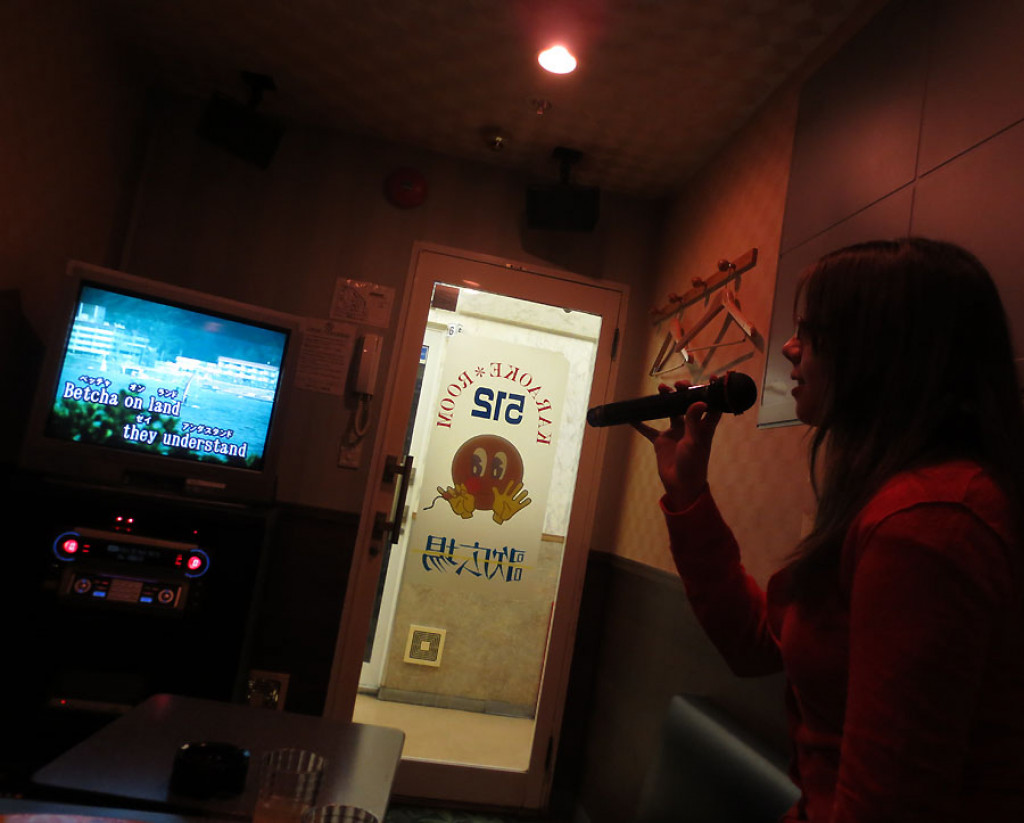
When it comes to elderly singletons, Matsushita says that this group – especially women – have “psychological resistance” to being seen alone. Matsushita, who’s married with kids, agrees, saying: “I enjoy hitori karaoke alone, sometimes.” Arakawa’s research in 2018 found that up to one in three married people do solo activities like occasionally travel alone. Ohitorisama also offers opportunities to those who are part of a “traditional” family unit, experts say. “I can sing whatever I want when I’m by myself.” “I’d be embarrassed if I can’t sing well,” he adds. Meanwhile Go Yamaguchi, a customer at 1Kara, says that when he does karaoke with his friends he has to wait for his turn. She also goes to the movies and karaoke alone, because it gives her more freedom, and says there are many solo services in Tokyo. “People get put off by the idea, but I go skiing alone,” she says.

Sitting at Bar Hitori, she says she’s rare among her friend group for wanting to do so many things by herself. Among married couples, more people felt all right about keeping a secret from their spouse.Įrika Miura, a 22-year-old Tokyoite who works in IT, is an ohitorisama veteran. Fewer people, for example, felt people should get married and have kids, while more felt it was OK to divorce even if you had kids. She cites a survey of 10,000 people she conducted that found increased attitudes toward independence and “family flexibility” from 2015 to 2018. “’You have to get married, you have to have a child’ – these social pressures are decreasing,” she says. In the case of benjo meshi, the sociologist who coined the term in 2008, Daisuke Tsuji of Osaka University, found that students ate in the toilet stall not because they didn’t like eating alone, but because they didn’t want their peers to think they had no one to share a meal with.īut Matsushita believes this is changing, saying negative social pressures around being alone have reduced. She says the blowback from this and the 24/7 communication culture then fueled the rise of ohitorisama. Matsushita says that along with the rise of social media – the way friend numbers or likes can dictate your value – this led to stifling peer pressure that stigmatised being seen alone. “We need to focus on living together in harmony, which is why peer pressure has been high.” She studies ohitorisama, its origins and its future. “Japan is a small country, and everybody needs to coexist,” says Motoko Matsushita, a senior consultant at Japan’s largest economic research firm, Tokyo-based Nomura Research Institute. Space has long been at a premium, so emphasis has been placed on collectivity and fitting in with others. Japan’s 125 million people are crammed into an archipelago a bit smaller than California – and four-fifths of that land is mountainous and uninhabitable. Western publications have written guides to drinking alone and reading a book at a bar, and solo travel has made careers for countless social media influencers.īut in a country where conformity and being part of the group have always been highly-prized, it is a big deal. British actress Emma Watson recently declared her love of the single life and being “ self-partnered”.
.png)
For example, in December, American actress Christina Hendricks posted photos of her #solodate at a concert.

In many nations, being solo might not seem so surprising.


 0 kommentar(er)
0 kommentar(er)
